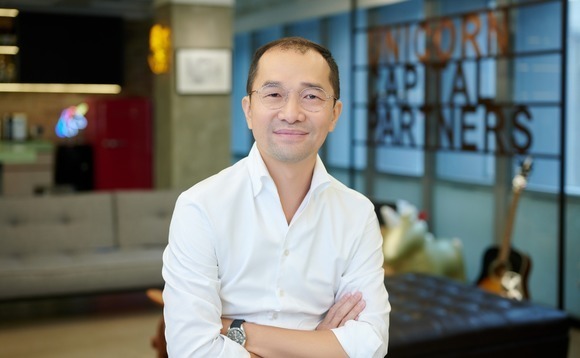
Fund focus: Unicorn does the hard yards

Six-year-old Unicorn Capital Partners has closed its latest China VC vehicle at the hard cap of $450 million, proving there is demand for fund-of-funds that offer something different
"Fund-of-funds is a challenging business model," declares Tommy Yip, founder and managing partner of Unicorn Capital Partners, a China-focused venture capital fund-of-funds. "LPs prefer to directly back funds and avoid an extra layer of management fee and carry."
This unexpected statement flies in the face of the firm's steady growth. Unicorn recently closed Fund IV - though its fifth overall - at the hard cap of $450 million after six months in the market. These represent new highs for the firm in terms of speed and size. The key, Yip maintains, is to look beyond plain vanilla offerings and find new ways to create value.
"You just have to do the hardest things and do them well," says Yip, who headed up North Asia at Emerald Hill Capital Partners before establishing Unicorn in 2015.
For a VC fund-of-funds, this means identifying diamonds in the rough, typically emerging managers who are inaccessible to mainstream international LPs because their potential is obscured by poor English skills. It also means getting in early, before managers have built up a substantive track record. Familiarity with the local landscape makes the risk easier to bear.
Unicorn's track record in this area speaks for itself. According to public information, the firm has backed the likes of Gaorong Capital, Eminence Ventures, Ince Capital, Glory Ventures, often coming in on day one.
This strategy has become even more relevant during the pandemic because travel restrictions prevent most international LPs from conducting on-site due diligence. A fund-of-funds with deep roots in the local market is an attractive proposition. "We've been able to amplify our value," Yip confirms. "It is hard for LPs to establish new manager relationships and back new funds right now."
There is no shortage of capital looking for VC exposure, with Yip describing liquidity in the US dollar fund space as the best in a decade. However, money is gravitating towards the top 5% of managers.
On one hand, this makes it difficult to secure allocations in the debut fund of a high-profile spin-out. Fundraising happens quickly and these managers choose their LPs rather than the other way around. They set the bar high in terms of quality and long-term sustainability. For this reason, Unicorn's funds are 12+1+1 years, enabling it to back GPs with 10+1+1-year vehicles.
On the other, picking winners among the cohort of emerging GPs is treacherous. Yip contends that there is no guarantee that a trio of vice presidents from a leading venture capital firm would survive if they struck out on their own.
Nearly $9.8 billion was committed to US dollar-denominated China VC funds in 2020, the second-highest annual total on record, according to AVCJ Research. The 2021 figure is already $5.1 billion.
Fundraising has favored the big-name players because COVID-19 has forced many international LPs to alter their schedules, Yip explains. Previously, they would deploy $50 million per year in China, allocating $10 million apiece to two key relationships and using the rest to explore new portfolio additions. The full $50 million is now going to re-ups and often to growth-stage funds.
Consequently, valuations for start-ups raising growth to late-stage rounds are elevated to the point of discomfort. "It might not be possible for every company that closes a Series B or C round to go public within the expected timeframe," Yip observes. "It's a bit crazy and people are getting worried about the disconnect between private and public market valuations."
Unicorn doesn't back growth-stage funds. At times, its early-stage GPs will double-down or triple-down on top-performing portfolio companies, essentially giving Unicorn growth-stage exposure, but this happens selectively.
As to how smaller managers can prevail in a market where the odds are stacked against them, specialization might be the answer. Enterprise software, consumer, deep-tech, and healthcare are emerging as focus areas. In some cases, larger generalists tap into these specialists' deal flow. This led the likes of Gaorong and 5Y Capital to become LPs of deep-tech player Glory.
Conversely, targeting the renminbi space is not viewed as a solution for up-and-coming GPs. Local currency fundraising is so challenging that managers are looking to restructure vehicles offshore with the support of international LPs. Unicorn is dubious on this opportunity set, given the primary motivating factor is often pushing for US IPOs.
"LPs invest in managers because of their investment acumen and what they are good at," says Yip. "If the manager is just raising US dollars to harvest renminbi-projects, that's not a sustainable strategy."
Latest News
Asian GPs slow implementation of ESG policies - survey
Asia-based private equity firms are assigning more dedicated resources to environment, social, and governance (ESG) programmes, but policy changes have slowed in the past 12 months, in part due to concerns raised internally and by LPs, according to a...
Singapore fintech start-up LXA gets $10m seed round
New Enterprise Associates (NEA) has led a USD 10m seed round for Singapore’s LXA, a financial technology start-up launched by a former Asia senior executive at The Blackstone Group.
India's InCred announces $60m round, claims unicorn status
Indian non-bank lender InCred Financial Services said it has received INR 5bn (USD 60m) at a valuation of at least USD 1bn from unnamed investors including “a global private equity fund.”
Insight leads $50m round for Australia's Roller
Insight Partners has led a USD 50m round for Australia’s Roller, a venue management software provider specializing in family fun parks.








